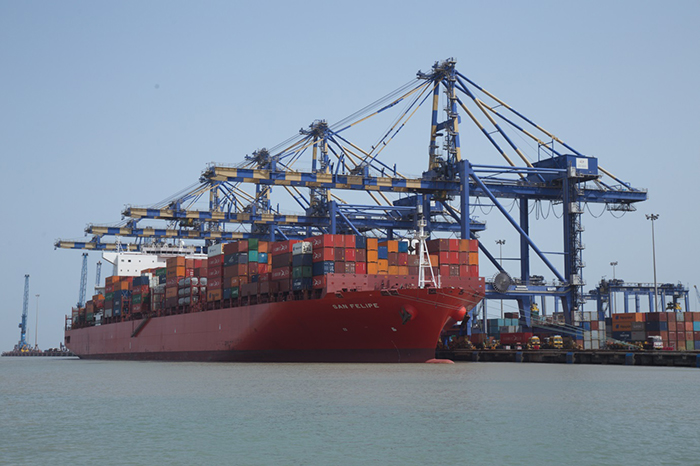The DP World-operated Mundra International Container Terminal (MICT), in its constant endeavor to transform Gujarat’s maritime and logistics industry, has introduced global standards of automation at the terminal. MICT has added a new quay crane and the country’s first remotely operated rail-mounted gantry crane (RMGC) to its existing infrastructure.
With these additions, MICT aims to enhance terminal productivity and augment automation at the port. Both the quay crane and the RMGC are designed for remote control operation, which enhances operational efficiencies, thus improving productivity and ensuring higher safety standards simultaneously.
The new quay crane (Super Post Panamax with an outreach of 60 metres/twin lift) is equipped with the latest technology, and is capable of handling next-generation large-size vessels. It comes with a Remote Crane Management System (RCMS) which aids the superior planning of maintenance and increases the availability of the equipment.
The terminal has also electrified its existing rubber-tyred gantry cranes (RTGs) in line with DP World’s commitment to protect the environment and build a sustainable future. E-RTGs will not only provide high productivity at low operations cost, but will also have minimal carbon footprint, said a release.
Mr Anil Singh, SVP and MD, DP World SCO, said, “The installation of rail-mounted gantry crane along with the new quay crane is in line with the company’s vision of ‘Leading the future of world trade’ .The investment reaffirms our support towards the government’s initiative of port infrastructure enhancement. At DP World, we strive to build a model for future port developments in India in terms of safety, operational efficiency and care for the environment.”
Mr Sandeep Mehta, Chief Executive Officer, DP World Mundra, said, “At DP World, customer service is central to everything we do. We continuously invest in our infrastructure and IT systems to add value and facilitate ease of doing business. The advanced technology and automation will enhance terminal efficiency and increase berth productivity at the terminal.”
MICT has handled 10 million TEUs since its inception in June 2003, making it the first terminal in Gujarat to have achieved this. In 2016, the terminal handled over 1.1 million TEUs and continued to excel in the areas of efficiency and output, achieving an average Gross Crane Rate (GCR) of 31 moves per hour. It continues to be on par with the best international standards.
The terminal is also one of the most technically advanced port facilities in the Indian Subcontinent. It is the closest gateway to the largest cargo generating regions of North and Northwest India, with ability to handle some of the deepest container vessels
[/vc_column_text]









